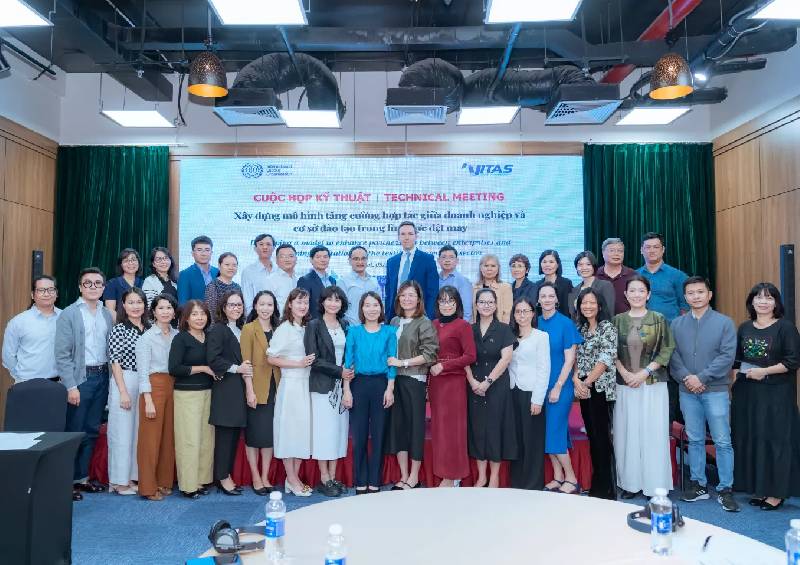New Working Group Launched to Enhance Skills and Sustainability in Vietnam’s Textile Sector

The Vietnam Textile and Garment Association (VITAS), with support from the International Labour Organization (ILO), has established a new working group to tackle skills development challenges in the textile and garment industry. Officially launched on December 10, 2024, this initiative aims to foster collaboration between enterprises and education and training providers to promote innovation and sustainable growth in the sector.
The working group, led by VITAS, comprises 19 members, including representatives from leading industry enterprises, universities, TVET institutions specializing in textiles, and a sector trade union. Its primary goal is to reduce skill mismatches and enhance the relevance of skills training to meet the evolving needs of the industry.
“Skills challenges in the textile and garment industry are significant as the sector transforms towards innovation and sustainability,” noted Akiko Sakamoto, Senior Specialist on Skills and Employability at the ILO Regional Office for Asia and the Pacific. “The establishment of this working group is a critical milestone, enabling a sectoral approach to addressing these challenges and achieving development goals.”
The initiative’s work plan, developed in collaboration with tripartite partners—including representatives from the government, workers, and employers—focuses on practical, actionable activities that enhance collaboration between businesses, educators, and training providers.
According to Truong Van Cam, VITAS Vice President and Secretary General, the working group is a stepping stone toward forming a Sector Skills Council for the textile and garment sector. Once the legal framework is established, this council will pursue more ambitious objectives to address the sector’s skills and sustainability challenges.
Nguyen Chi Truong, Director of the Skills Department at the Directorate of Vocational Education and Training (DVET), Ministry of Labour, Invalids and Social Affairs (MOLISA), applauded the initiative, emphasizing that it would enhance the impact of skills investment on business performance and foster deeper industry engagement in TVET.
The working group is supported by the ILO’s Future of Work in Textile and Clothing: Forecasting and Developing Skills to Advance Decent Work and Productivity in the Sector project, funded by the Governments of the Netherlands and Japan. This project builds on the recommendations from the skills needs assessment and sectoral skills strategy developed by the ILO and VITAS in collaboration with tripartite partners during 2023–24.
By aligning skills training with industry needs, the working group seeks to address skills mismatches, support the sector’s growth, and promote sustainable practices. While much work remains, this initiative is a vital step toward ensuring the textile and garment industry in Vietnam can thrive in a competitive and sustainable future.














